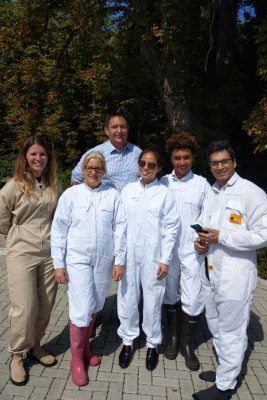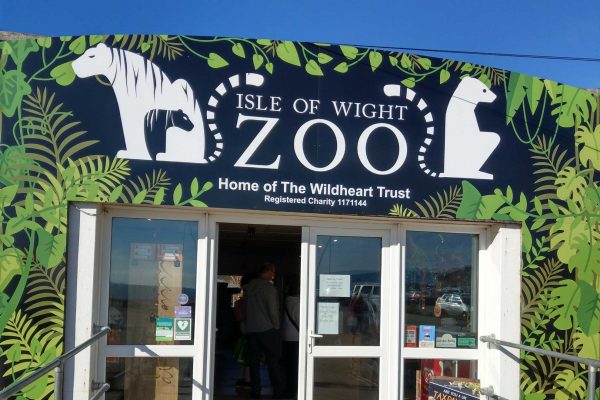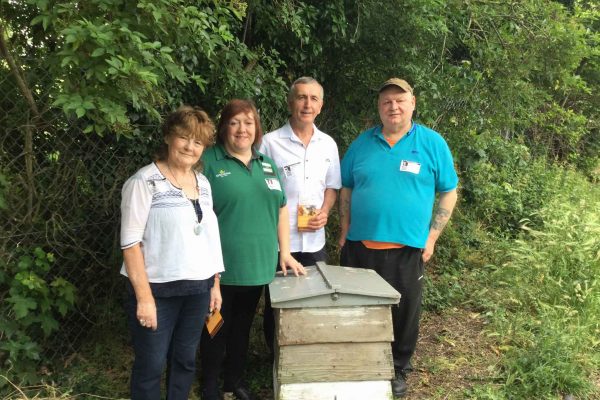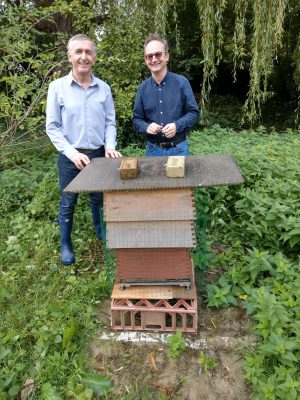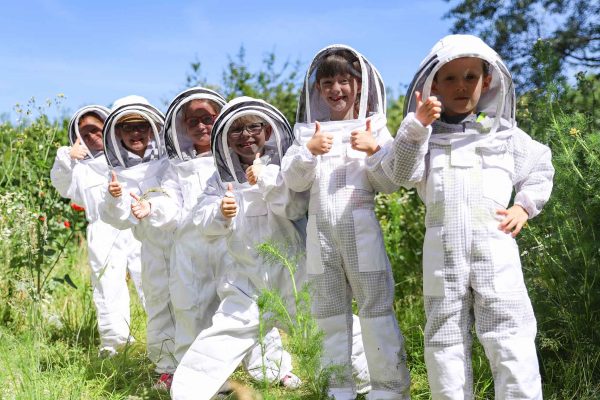Investigating the survival of our wild honeybee population
BeesMax is proud to announce a collaboration with Sussex University investigating the survival of our wild honeybee population.
The Laboratory of Apiculture & Social Insects (LASI) and BeesMAX will pool resources to further our knowledge of the continued viability of the wild honeybee in British woodland.
We will be discovering:
- How many honeybee colonies exist per square mile across the UK
- Their lifecycle
- Their hybridisation with imported honeybees, and
- Whether the honeybees can maintain their positive influence over the environment.
The BeesMAX contribution is to increase public awareness, create a national database of where the wild colonies exist, and provide a valuable resource for future research.
Local knowledge to help long-term survival
Wild bee colonies, to some hobbyist beekeepers, are a valuable resource of swarms; what that effectively means is that beekeepers can use these newly born colonies to repopulate their domesticated colonies. All well and good but it doesn’t actually benefit the wild honeybee population.
BeesMAX is looking to discover a way to use local knowledge of the British beekeeping fraternity to not only collate a central database of their existence but to deliver ways to ensure the honeybees’ long-term survival.
Although these aims may seem to be obvious to beekeepers, it’s not actually understood how to achieve this renewal and regeneration of the honeybee population.
There is lots of anecdotal information in the public domain about the reducing honeybee numbers but no quantitive knowledge exists.
Reduction in homes for wild honeybees
Before World War II there were over a million beekeepers but now that has reduce to approximately 250,000. That may still seem a large number but this means:
- Three quarters of the domesticated colonies that used to exist are now extinct;
- Three quarters of the supporting hobbyist processes that used to help maintain the UK wild honeybee populations have now gone.
If you combine this reduction in supporting hobbyist beekeepers with the continued deforestation of the UK’s very old trees that used to provide homes for wild honeybees (because without a home nobody can survive), then we have an impending end date to wild honeybees, regardless of how many nectar producing wild flowers we plant.
Locating the bee trees across the UK
If we do not understand where honeybees live, and protect those trees providing the place for the honeybees to live in, then the pollination of our food will become totally dependent upon the urban hobbyist beekeeper.
We can plant wild flowers to support honeybees, but we must act now to locate and protect their homes and preserve their natural habitat.
Photos below highlight some of the other collaborations BeesMAX spearheads across the business and education sectors.
Remote Access to the BeesMAX Free Living colony
In March 2021, to coincide with the launch of our crowdfunding campaign, BeesMAX will relocate a colony of free living honeybees in its section of tree to the Sussex University Apiary. Our remote access IT monitoring system will be able to observe changes within the colony normally hidden from view.
